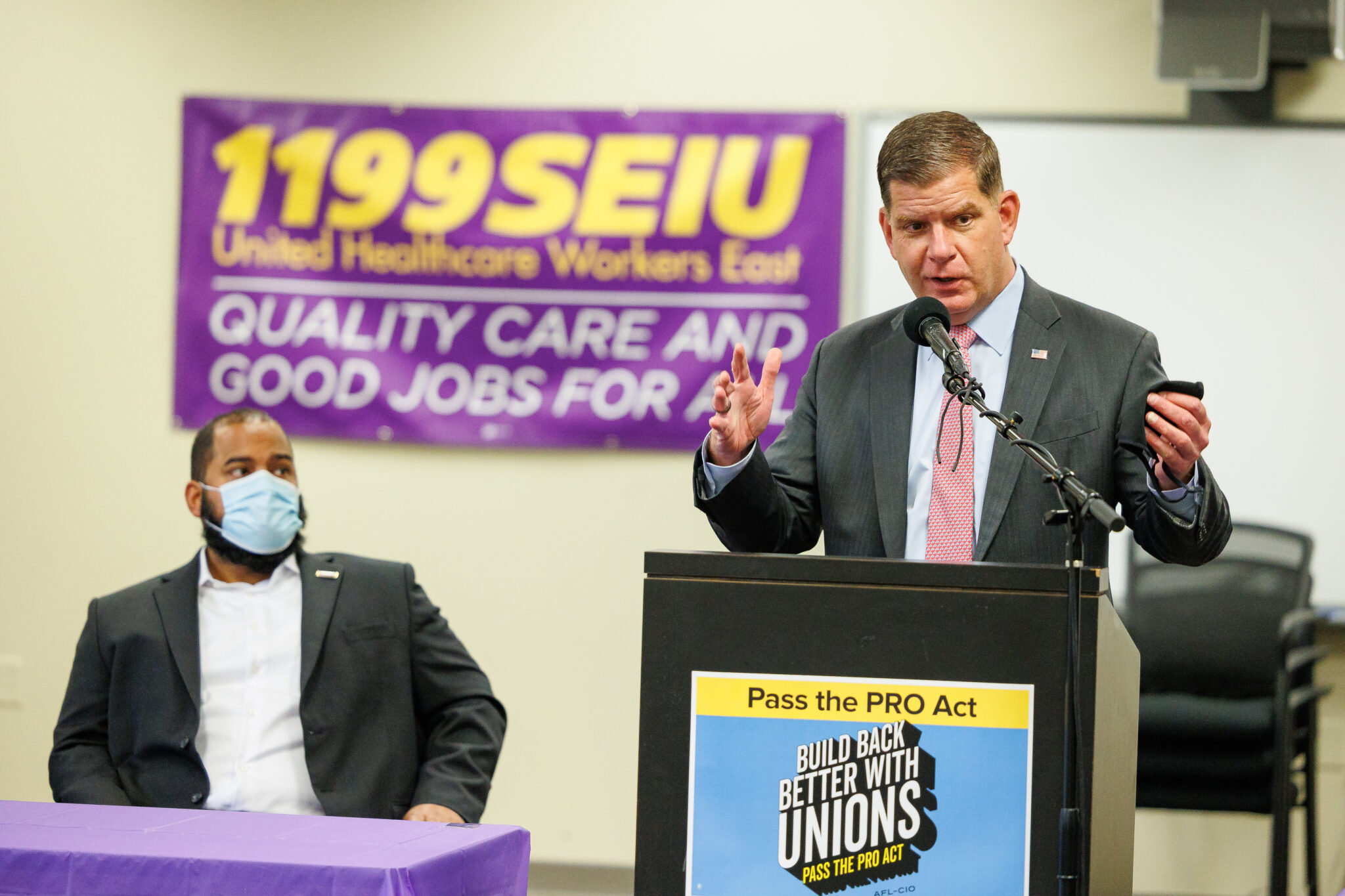
Gurtaran Johal is a student at Harvard Law School.
In today’s news and commentary, the U.S. Department of Labor announces termination of mental health and child care benefits for its own employees; SEIU pursues its challenge to the NLRB’s 2020 joint employer rule in the D.C. Circuit; and Columbia University cuts 180 staffers in response to the Trump Administration’s funding cuts.
Bloomberg Law reports that effective May 9th, the U.S. Department of Labor is terminating its Worklife4You program, which provides support for expecting parents, eldercare, and special needs. DOL describes its WorkLife4You program as a “free resource and referral service” which can help DOL employees “manage personal and family responsibilities.” In addition, the Department is ending its employee assistance program, which provides mental health services to employees, also effective May 9, except for a few remaining sessions for employees in “drug testing designated positions” or who were “recommended for counseling as part of an employee relations matter.” DOL’s union plans to challenge the termination of these programs, arguing that these are benefits that the collective bargaining agreement requires the Department and the union to promote to its employees.
Meanwhile, SEIU has renewed its challenge to the NLRB’s 2020 joint employer rule, bringing it to the D.C. Circuit. On February 26, 2020, the NLRB, under the first Trump administration, published a final rule tightening the standard for whether workers are jointly employed by affiliated companies. The final rule stated that a company is a joint employer if it has “substantial direct and immediate control over essential terms and conditions of employment.” This was a significant move away from the NLRB’s 2015 decision in Browning-Ferris, which allowed a company to be a joint employer even in circumstances of indirect control. SEIU originally filed suit in September 2021 in the U.S. District Court for the District of Columbia to stop the rule’s enforcement and deem it a violation of the Administrative Procedure Act. The case remained dormant after the NLRB began developing a new joint employer standard. On May 5, however, in light of the Board’s uncertain ability to act on the petition for joint-employer rulemaking, SEIU requested that Judge Rudolph Contreras of the U.S. District Court for the District of Columbia hold the case in abeyance while SEIU takes its challenge to the D.C. Circuit, a request that Judge Contreras granted.
Lastly, on May 6, Columbia University announced that it would lay off 180 researchers employed through federal grants impacted by the Trump Administration’s funding cuts. In March 2025, the Trump administration cut $400 million in federal funding from Columbia, resulting in significant strains on the university’s budget. In its letter, signed by top Columbia administration officials, the university noted that it is engaged in a “two-pronged effort” related to these terminated grants, focusing on restoring partnerships with government agencies while reducing expenditures given current financial pressures. The university also stated that the 180 laid-off researchers constituted 20% of the individuals impacted by the funding cuts, demonstrating the extent and impact that such layoffs will have.






Daily News & Commentary
Start your day with our roundup of the latest labor developments. See all
July 1
In today’s news and commentary, the Department of Labor proposes to roll back minimum wage and overtime protections for home care workers, a federal judge dismissed a lawsuit by public defenders over a union’s Gaza statements, and Philadelphia’s largest municipal union is on strike for first time in nearly 40 years. On Monday, the U.S. […]
June 30
Antidiscrimination scholars question McDonnell Douglas, George Washington University Hospital bargained in bad faith, and NY regulators defend LPA dispensary law.
June 29
In today’s news and commentary, Trump v. CASA restricts nationwide injunctions, a preliminary injunction continues to stop DOL from shutting down Job Corps, and the minimum wage is set to rise in multiple cities and states. On Friday, the Supreme Court held in Trump v. CASA that universal injunctions “likely exceed the equitable authority that […]
June 27
Labor's role in Zohran Mamdani's victory; DHS funding amendment aims to expand guest worker programs; COSELL submission deadline rapidly approaching
June 26
A district judge issues a preliminary injunction blocking agencies from implementing Trump’s executive order eliminating collective bargaining for federal workers; workers organize for the reinstatement of two doctors who were put on administrative leave after union activity; and Lamont vetoes unemployment benefits for striking workers.
June 25
Some circuits show less deference to NLRB; 3d Cir. affirms return to broader concerted activity definition; changes to federal workforce excluded from One Big Beautiful Bill.